« December 2012 | Main | February 2013 »
January 31, 2013
Sensitive Litigation Moment: The Tingle & Tonic of a New Idea.
See this classic one on tough moments, big moxie and hard-won renewal by Matt McCusker in Deliberations:
We have all felt beaten down at one point or another while preparing for trial. We’ve been lost in the woods and unable to keep our heads up as we slowly sank into a seemingly inescapable abyss. Then suddenly, an idea landed out of nowhere. We grasped it and utilized the concept to climb out of the desperate circumstances. After a little sweat and tears, we freed ourselves from old themes and ran to victory with a new strategy.

"E" excited at a press conference, 1950. Are you?
Posted by JD Hull at 11:59 PM | Comments (0)
Braeside School, Highland Park, Illinois.

A Prairie-style school built in 1929 that I attended in the 1960s. Architect: John Van Bergen. National Historic Landmark in 1982.
Posted by JD Hull at 03:59 AM | Comments (0)
January 30, 2013
Tennessee Williams: Father "was a telephone man who fell in love with long distances."
This is our father who left us a long time ago. He was a telephone man who fell in love with long distances.
--Tom Wingfield, Narrator, and Laura's brother, pointing to a picture on the mantle in their St. Louis walk-up, in The Glass Menagerie, by Tennessee Williams (1911-1983)
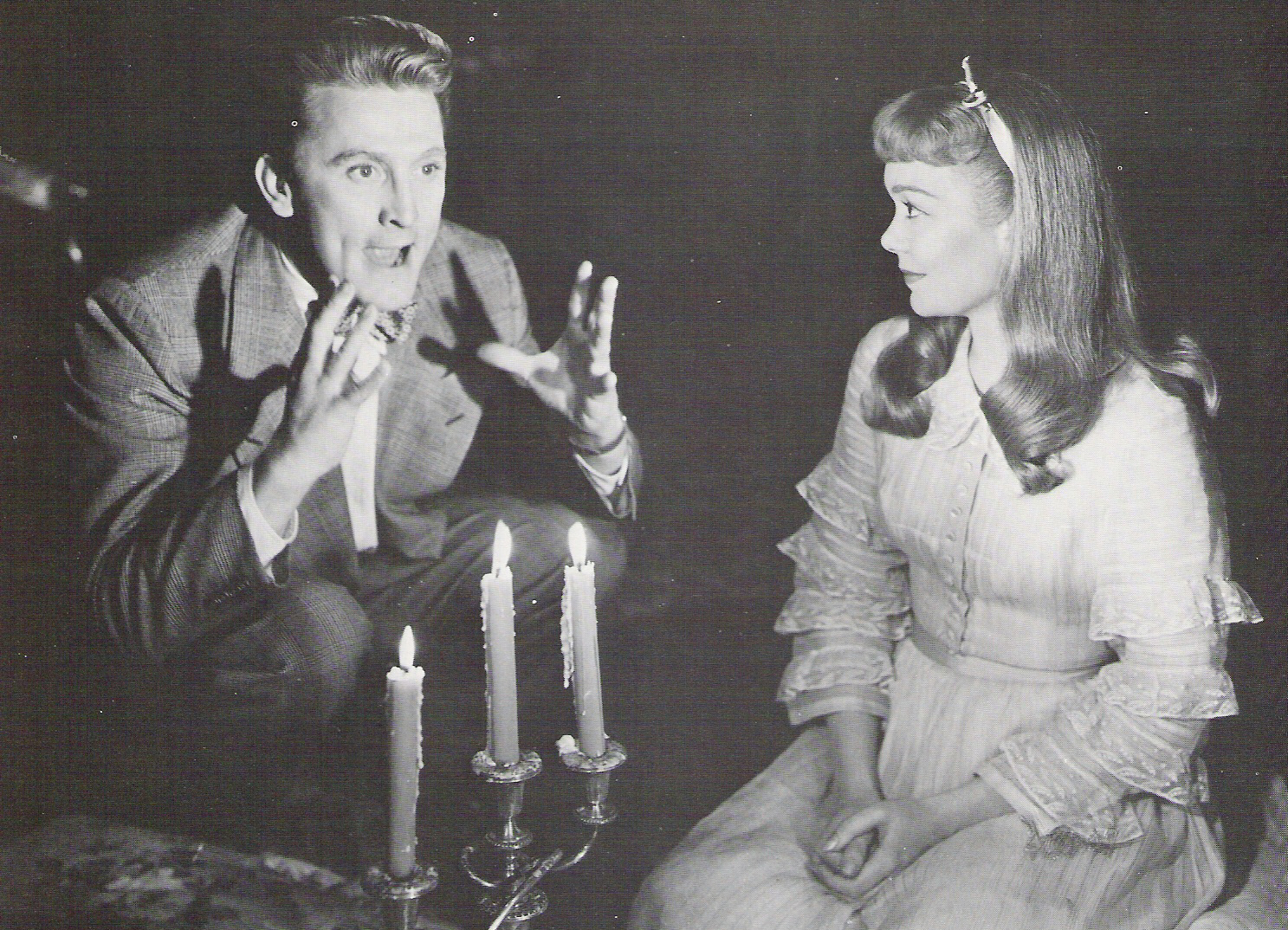
1950 production with Jane Wyman as Laura, Kirk Douglas as the Gentleman Caller.
Posted by JD Hull at 11:59 PM | Comments (0)
Sensitive Litigation Moment: "Slick Lawyer Answers to Lazy Lawyer Interrogatories".

"The Lawyers", circa 1855, Honoré Daumier (1808-1879)
We--some of us, anyway--do feel his pain.
Try not to be a Dork. Written discovery practice shouldn't be a joke. Not that many years ago, in Manhattan's fabled Southern District, a fed-up federal judge, throwing up his hands during arguments by lawyers on a motion to compel discovery responses, referred to certain answers to interrogatories in the dispute as "slick lawyer answers to lazy lawyer interrogatories".
We--some of us, anyway--do feel his pain. Feel free to color this all quite silly, and annoying, if you want--but we love and respect written discovery during the pretrial process in American federal courts.
About ten years ago, and for a brief period of time, a fundamentally talented second year associate with the makings of a very good trial lawyer worked in our Pittsburgh office, after having spent one year at another firm.
One day, he complained to me that we were putting too much thought and effort into a set of interrogatories under Rule 33, Fed. R. Civ. P. I listened very carefully.
The new hire very patiently, calmly and slowly--so I could digest and embrace a great truth he'd discovered (and one that of course had escaped me)--explained to me that "the exercise" of serving interrogatories and other written discovery upon counsel for plaintiff was merely a "routine".
In reality, he went on, written discovery was "simply a way for lawyers to bill time so they could make money". Nothing more, he said. He was certain and even adamant about it, too. Nice guy, smart guy, and I really liked him--I still do. So I always make it a point to take his cab whenever I'm in Rogers City, Michigan.
Complex and hard-fought civil cases really do turn in large measure on the quality and honesty of the discovery questions and requests, including deposition questions, and the responses to them. And well-thought out and strategically-timed written discovery is the best way there is to prepare great depositions--and get ready for trial.
(from previous JDH posts)
Posted by Holden Oliver (Kitzbühel Desk) at 12:59 AM | Comments (0)
This is England: Ray Davies, Glastonbury, 2010.
Canada to India, Australia to Cornwall, Singapore to Hong Kong. From the West to the East, from the rich to the poor. Victoria loved them all.
Posted by Holden Oliver (Kitzbühel Desk) at 12:09 AM | Comments (0)
January 29, 2013
Magic Year 2013? "I'm so nervous I just sit and smile."
Posted by JD Hull at 12:59 AM | Comments (0)
The Customer Experience: Think Like a Customer on Costs.
Ask an associate lawyer or paralegal what a "profit" is. You will get two kinds of answers. Both answers are "correct" but neither of the answers helps anyone in your firm think like the client.
Think Like the Client--Help Control Costs is Rule Eight. It's from our annoying and opinionated but accurate and soulful 12 Rules.
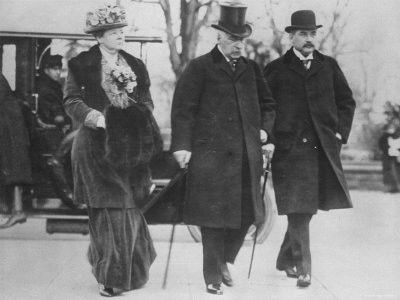
J.P. Morgan (1837-1913) was cheap, rich, annoying, opinionated, and controversial. But he knew want clients and customers wanted.
Posted by JD Hull at 12:00 AM | Comments (0)
January 28, 2013
Elizabeth Bowen on Writing: First Sentences.
Bring all your intelligence to bear on your beginning.
--Elizabeth Bowen, Anglo-Irish fiction writer (1899-1973)
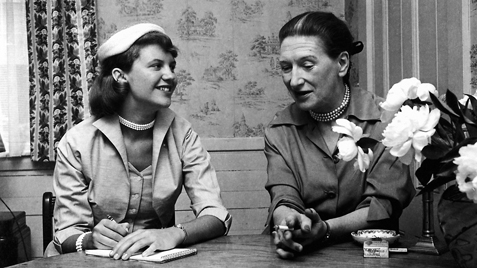
May 1953: Sylvia Plath interviews Elizabeth Bowen for Mademoiselle.
Posted by JD Hull at 11:59 PM | Comments (0)
January 26, 2013
The "new" DOJ-SEC Guidance to the U.S. Foreign Corrupt Practices Act.
Re: the much-heralded release in December of FCPA guidance by the Criminal Division of the U.S. Department of Justice and the Enforcement Division of the U.S. Securities and Exchange Commission. Does the new Resource Guide to the U.S. Foreign Corrupt Practices Act keep American companies acting abroad guessing about what constitutes bribery? Does its 130 pages "guide", even in a guidance-is-non-binding sort of way? Once again, what's a "foreign official"? What if any new defenses are really available to FCPA violations? What is the actual scope of gifts, entertainment and travel under the FCPA?
.jpg)
Posted by JD Hull at 11:59 PM | Comments (0)
Obey. Charleston.
Street artist, stencilist, IP outlaw and hero, Charleston-born Shepard Fairey.

Posted by JD Hull at 11:59 PM | Comments (0)
January 25, 2013
Bring the Florentine Kids Home: Update on 2011 Abduction of American Lawyer's 4 Children.
I bimbi non vedono casa dal 27 agosto 2011.* At the Florence, Italy-based BringFlorentineKidsHome, see "Other Crimes of Marianne Grin Марианны Гринь". Explore the site to bring yourself up to date on this abduction in 2011 of four children by an ex-wife, mother and non-custodial parent from the home of the father, the custodial parent, in Florence, Italy to St. Petersburg, Russia. For a good summary of the facts, see this post. Today a Russian court is expected rule on recognition of the Italian judgment providing that the children should live with their father, an American lawyer based in Florence.
Another update today from the BringFlorentineKidsHomes site, on the St. Petersburg court ruling, reports that Judgment: Russia will not respect international treaty; no reasons given. It begins:
The Russian court today in St. Petersburg denied the request for recognition of the final Italian judgment, refusing to apply the international convention the country signed with Italy for the enforcement of civil judgments.
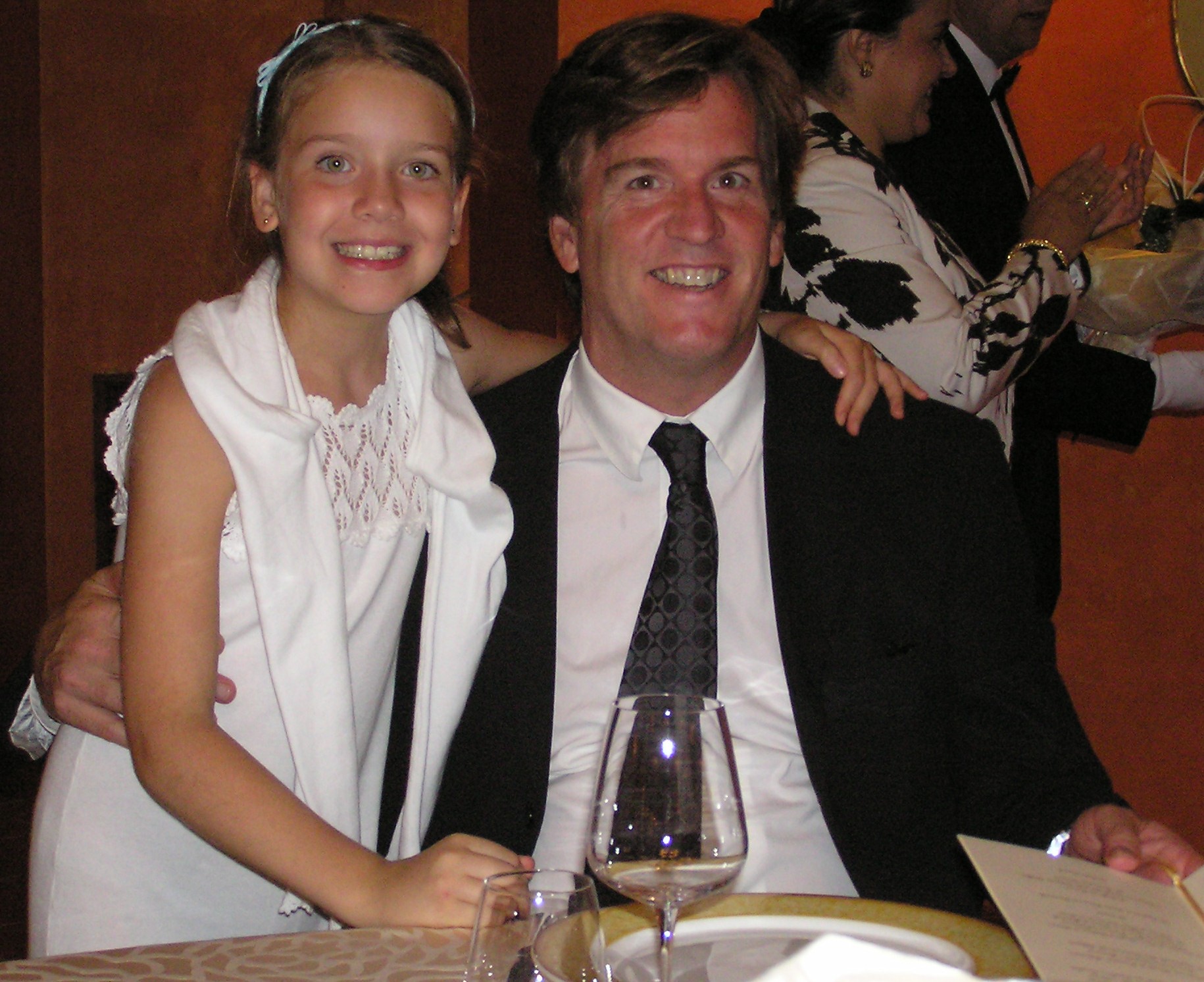
*The children have not been home since August 27, 2011.
Posted by JD Hull at 05:46 PM | Comments (0)
The Customer Experience: Deliver Services That Change How Clients Everywhere Think About Lawyers.
In America, they made it easy to become a lawyer. Some day, everyone, including your waitress in Hamilton, Ohio, will be a lawyer. And Nadine, your server, has already got the jump on you, if you think about it for 15 seconds. She already lives to serve. You and me? Maybe not so much, Jack. So get a head start on those you can. Rule 4: Deliver Legal Work That Change the Way Clients Think About Lawyers. From our annoying-but-true and now world famous 12 Rules.

Posted by JD Hull at 12:59 AM | Comments (0)
January 24, 2013
Just Say It: Legal Writing with Soul and Spine.
My Mom in Cincinnati wants me to write more good and nice things. She's a very positive and spiritual person--clearly put here on Earth to make up for some of the rest of us. So what about good and sane writing by lawyers? How do you do it?
Here are some suggestions from our firm's Practice Guide for beginning associates, paralegals and assistants. None of this is gospel--lots of lawyers and non-lawyers have good ideas on sane lawyer writing--but pay particular attention to the final Point 8:
1. Use short "people" words whenever possible. Like words a trial lawyer might use in addressing a jury. Use short sentences. Be precise but informal. Don't try to sound too much "like a lawyer": "whereupon", "hereinafter," "aforementioned", etc. Few human beings are impressed or enlightened by these terms. No one sane or secure likes them. Just say it.
2. Economize on words. Make every word count. Don't repeat yourself.
3. There are no perfect or sole answers to 95% of legal issues. So offer a few alternatives, take a position and even break new ground. You need a reasonable and logical position which makes good business sense and provides an affirmative recommendation, plan of action or conclusion. Whatever you do, do not only tell the client what it cannot do under the law. Tell our client what it can do, too.

4. Be accurate and truthful--yet friendly, personable and optimistic in your writing style. Clients know they have issues and problems. There's no need to further agitate and depress them.
5. Proofread, proofread, proofread. (NOTE: We have a written policy on proofreading you must actually sign.) Pretend that, for every typo you miss or grammatical error you make, you have to buy Dan Hull as many Heinekens as he could drink in one evening in his late twenties on a St. Patrick's Day in the most expensive Capitol Hill watering hole he and his friends could find.
6. Citations of sound authority should be used--but used sparingly. No string cites. Use the The [Harvard] Blue Book--A Uniform System of Citation or the much maligned University of Chicago Manual of Legal Citation, "The Maroon Book". The citator is your friend--not your enemy.
7. When you write, get to the point up front and summarize it right away. And then expand on it. Don't make the client, other lawyer or judge guess about what your conclusion will be 5 pages away.
8. Take a stand. Tell the client what you think the client should do. Our client reps are business people or lawyers. A good way to make them mad is to not tell them what you think they should do. If your advice is sound, and followed, but not successful, don't sweat it. Business clients take calculated risks every day--and you can, too. Pretend here you are not the side-stepping risk-averse lawyer they may have trained you to be, and take responsibility for some of the failure. But do make a decision, recommend something concrete--and take the hit if you are wrong.
Posted by JD Hull at 06:22 PM | Comments (0)
January 23, 2013
White Collar Cultural Literacy: Is It Time Yet?

Posted by JD Hull at 11:14 PM | Comments (0)
Sensitive Litigation Moment No. 239: Money, Guns and Budgets.
War is the last of all things to go according to schedule.
-- Thucydides (460 BC - 395 BC) in The History of the Peloponnesian War.

"Spartan Woman Giving a Shield to Her Son", 1805, Jean-Jacques-François Le Barbier. In the lore and legend of Sparta, when a son left home for the military, his mother said: "Fight well and fairly. Return with your shield or on it."
Posted by JD Hull at 12:59 AM | Comments (0)
January 21, 2013
Martin Luther King, Jr. (January 15, 1929 – April 4, 1968)

Above: King in 1957 at his home in Montgomery, Alabama. Had he lived, King would have turned 84 last week. In 1964, at the age of 35, he won the Nobel Peace Prize. He was 39 when he was killed.
Posted by JD Hull at 11:59 PM | Comments (0)
Inauguration: We Love a Parade.
Below: On March 4, 1925, President-elect Calvin Coolidge rides in a car during his inaugural parade. Today's public inaugural ceremony will be the country's 57th. It occurs on Martin Luther King Day.

Posted by JD Hull at 11:59 PM | Comments (0)
The Customer Experience: It's not about you, Justin. Like ever.
There are bad days. A parent is sick. A child gets stitches. You are coming down with the flu. You learn your girlfriend is cheating on you. In fact both of your girlfriends are cheating on you (and not even with each other).
Rule 10: Be Accurate, Thorough and Timely--But Not Perfect. Practicing law is getting it right, saying it right and winning--all with a gun to your head. Being "accurate, thorough and timely" are qualities most of us had in the 6th grade, right? Back when everyone told us we were geniuses and destined for great things?
Well, school's out--now it's about real rights, real duties, real money and personal freedom. That's a weight, and it should be.
Suddenly facts are Everything--and the actual law less important than you ever imagined. In time you learn to research, think and put things together better and faster. You develop instincts.
You learn there is really no boilerplate and no "cookie-cutter" work. You learn there are no "right answers"--but several approaches and solutions to any problem. You are being asked to pick one. But at first, and maybe for a few years, being accurate, thorough and on time is not easy to do.

"Job and His Friends" by Vladimir Borovikovsky, circa 1810. Some days? You suck it up. You suffer.
"I Have Clients?" One day, you start to visualize your clients as real companies and real people with real problems. These are your clients--not your parents or professors--and they are all different. You "feel their pain", and it's now yours, too.
Mistakes. If you work with the right mentors and senior people, they will allow you to make mistakes. You need freedom to make mistakes. You'll be reminded, however, not to let those mistakes out of the office. It's a balancing act, a hard one.
Really bad days lately? So sorry. But your problem, Justin. You are expected to be "professional"--no, that is not about being polite and courtly with other lawyers--and put clients first on your worst damn day. And it's going to happen.
A parent is sick. You are coming down with something yourself. Your boyfriend is cheating on you. Both your girlfriends are cheating on you (and maybe with each other). Your teenage kids "hate" you. Or this morning you had to abandon that 12-year-old Honda you had in law school on the 14th Street Bridge.
And minutes before your big afternoon meeting or court appearance, a GC or co-worker calls you with the worst possible development, something unexpected and beyond your control, in a project for your favorite client.
These things will happen. And happen together. You think you're pretty tough. But you sag visibly--like an animal taking a bullet.
And in five minutes, you have to be at your very best. Again, it's not about school. It's no longer about you. You're beaten, beaten completely--and right now you have to get up and fight for someone other than yourself.
You up for this? Because, in our experience, very few of your peers are.
Bucking Up, Using Fear. And while you can't work in a state of constant worry, fear and paralysis, talking yourself into heroics, getting a little paranoid and even embracing a little fear won't hurt you, and may even help. You are being paid both (1) to be accurate, thorough, timely and (2) to just plain "not screw up".
“Thorough” means "anticipating", too. What makes you really good in a few years is being able to "see the future" and spot a ripple effect in a flash. To take a small example, if your client is in an active dispute with the government or on the brink of a full-blown litigation with a competitor, the client's and many of your own letters and e-mails aren't just letters and e-mails.
Whoa, they are potential exhibits, too. They can be used for you or against you. So they need to be written advisedly and clearly so that they advance your position and so that a judge, jury or someone 5 years from now can look at it cold and figure out what's going on. No "talking to yourself" here; think "future unintended consequences" when you think and write.
"But Not Perfect." Not talking about mistakes here. I refer to the paralysis of high standards. I know something about the second part of Rule 10--because I tended to violate it when I was younger. And I still want to.
Finally, note that Perfectionism is the Great Destroyer of Great Young Associates. Don't go there. Don't be so stiff and scared you can't even turn anything in because you want it "perfect" and you keep asking other lawyers and courts for extensions. It's not school, and it's no longer about you. Think instead about Rule 8: Think Like The Client--and Help Control Costs. Balance efficiency with "being perfect", and err on the side of holding down costs. If a client or senior lawyer in your firm wants your work to be "perfect", and for you to charge for it, believe me, they will let you know.
Finally, and I almost forgot: always use the Blue Book/Maroon Book for your citations. No one gets a pass on that one.
Posted by Holden Oliver (Kitzbühel Desk) at 12:00 AM | Comments (0)
January 20, 2013
The Eddie Haskells of Litigation.

Two questions: You know any law firms like this? Is yours one?
Posted by JD Hull at 12:00 AM | Comments (0)
January 19, 2013
Sensitive Litigation Moment: The Sleeper is Fed. R. Civ. P. 27.
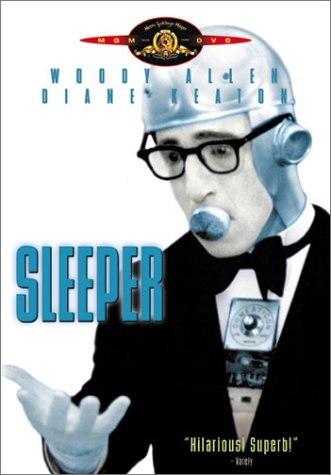
Rule 27 of the U.S. Federal Rules of Civil Procedure is "Depositions to Perpetuate Testimony". Subdivision (a) covers "Before an Action Is Filed".
Rule 27(a)--and its many state counterparts--is not used that much. In non-federal cases, most states have some versions of Rule 27, with different case law on how you can take discovery before an action has been commenced. Valid reasons might be to preserve testimony which might "get away", e.g., a dying or homeless witness or a witness about to skip town. Or (less commonly) to do a limited pre-suit evaluation of the merits.
The state versions are worded very similarly to the federal rule; however, the case law on what you can actually do with the state counterparts of the rule vary widely from state to state. One common concern: that the rule will be used to harass and intimidate (read: "mess with people") rather than to perpetuate/preserve.
Courts--federal and state--don't see it that much. One very good North Carolina judge initially was concerned that an out-of-state lawyer (me) was introducing him for the first time to the state's Rule 27. So go easy, check the cases on it, and think it through. Local lawyers may not be much help; understandably, they often have rote, unthinking habits about their own procedural rules. We all do that--and we are missing a lot.
Final Note: For what it's worth, in federal courts--where 90% of our litigation for clients finds a home--I do not recall ever invoking Rule 27 "pre-suit".
Posted by JD Hull at 12:59 AM | Comments (0)
January 18, 2013
Drinking: Caravaggio's Bacchus.

"Self-Portrait as Bacchus", Caravaggio, c. 1593, Galleria Borghese, Rome.
Posted by Holden Oliver (Kitzbühel Desk) at 11:59 PM | Comments (0)
Englishness: The Novel.
The English novel, the single most potent agent of English culture on the Continent, was par excellence, about characters and manners.
--Paul Langford, Englishness Identified: Manners and Character, 1650-1850 (Oxford University Press, 2000)
.jpg)
Posted by JD Hull at 11:12 PM | Comments (0)
Thomas Hardy: On Egdon Heath.
The most thorough-going ascetic could feel that he had a natural right to wander on Egdon [Heath]--he was keeping within the line of legitimate indulgence when he laid himself open to influences such as these. Colours and beauties so far subdued were, at least, the birthright of all.
--Thomas Hardy, The Return of the Native, 1878, from Book First, "Three Women".
Posted by JD Hull at 12:34 AM | Comments (0)
January 17, 2013
James Michener: On Rewriting.
I'm not a very good writer, but I'm an excellent rewriter.
--James Michener (1907-1997)

Posted by JD Hull at 11:59 PM | Comments (0)
Mark Booth: A blade of grass, a baby's pulse and the light in a lover's eye.
Death is in everything in the cosmos--woven into the bright blue sky, a blade of grass, the pulse of a baby's fontanelle, the light in a lover's eye.
--Mark Booth, The Secret History of the World (2008).

Vouet, “Father Time Overcome by Hope, Love, and Beauty” (1627)
Posted by Holden Oliver (Kitzbühel Desk) at 06:59 PM | Comments (0)
January 16, 2013
Sensitive Litigation Moment: Use Litigation to Fix Client Problems Now. Not Later.
 (2).jpg)
The Tyrolean ex-Mrs. Oliver could fix anything.
If you are truly service-driven for corporate clients, you live it, breathe it, get it. And all your employees do. It's not a ruse you lay on clients to get new work through the door because you need a new one-night stand to make ends meet, or because it sounds good (i.e., you and yours are could care less about clients, and are in fact the "Eddie Haskells" of client service; yet "client service" must be in your promotional materials and it's cool these days to make even specious noises about it). Instead, you know that "doing the work is marketing". For you, keeping good clients is a passion, preoccupation, a religion. It's not just for show.
Here's an idea for lawyers who are serious about service:
In many business litigations your firm has opportunities to isolate and bring to the client's attention "areas for improvement" highlighted in litigation. Your trial lawyers make mental notes about how lawsuits either arise or are made complicated and expensive by conditions, procedures or documents which need corrective action at the client's shop.
These defects usually lurk unnoticed in day-to-day business practices, often obvious to the client's rank and file employees. It could be: a confusing employee handbook, a potentially faulty environmental storage practice, ambiguous language in a surety or insurance document, and even a culture or specific office location of the client which which seems ripe for workplace discrimination claims.
You get the idea.
So early on in the engagement, inform your general counsel or client rep about the problem or imperfection, and tell her that other departments in your law firm would be glad to help outline the problem in detail and/or solve it. If the client doesn't need or want your help to fix the problem, fine. The point is that you are looking out for your client in the long-term--in overall operational areas of its business--and your firm cares enough to say something and offer to help.
Everybody wins when you help clients address systemic issues presented by litigation. No insincere gimmicks here: just alert and useful lawyering as your real marketing tool.
(from past posts)
Posted by Holden Oliver (Kitzbühel Desk) at 12:00 PM | Comments (0)
How to Roll. How to Travel.
Journeys are the midwives of thought.
--Alain de Botton, The Art of Travel (2002)
Borobudur, Indonesia.
Posted by Holden Oliver (Kitzbühel Desk) at 12:59 AM | Comments (0)
January 15, 2013
O New York City, you talk a lot. Let's have a look at you.
You look like a city
But you feel like a religion.
--L. Nyro, 1969
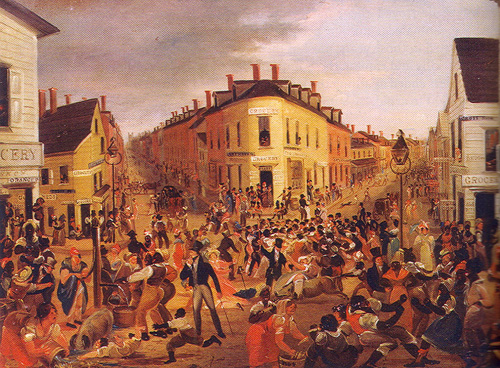
Five Points, George Catlin, 1827

Foley Square, 1963
Posted by Holden Oliver (Kitzbühel Desk) at 11:00 PM | Comments (0)
January 13, 2013
The Customer Experience: Does everyone in your shop think that Customers are the main event?
Rule Three: Make Sure Everyone in Your Shop Knows That The Client Is The Main Event. The truth is that they probably don't. That's your fault--not theirs. From our hopelessly in-your-face, annoying, repetitive and now world-famous 12 Rules.

Posted by Holden Oliver (Kitzbühel Desk) at 12:58 AM | Comments (0)
January 11, 2013
Sensitive Litigation Moment: Two Ways of the Trial Notebook for Business Trials.

(Miramax Films)
There's no Boilerplate in Baseball.
--Often incorrectly attributed to Tom Hanks; rather, it's a quip of Haywood Wise.
For business trials, see for starters the outlines for Trial Notebooks, either One or Two, at Evan Schaeffer's Illinois Trial Practice. We like the latter, but you should mix and match--and use your great unused brain. Both sides of it. And be advised:
1. Each client, each problem to solve, each transaction, and each trial is unique, and Different From The Other.
2. If you have Quality Work to do, and will be doing it for Quality Clients, you're not in a "forms" profession.
3. Do away with knee-jerk lawyer "form-think", too. It's bad for clients. Not to mention uninspired, un-American (and un-English)--and boring.
4. Forms and form-think generally do not save money. They generally do cause problems.
Posted by Holden Oliver (Kitzbühel Desk) at 11:59 PM | Comments (0)
The Customer Experience: What Professional Services Clients Always Want.
I don't want a lawyer to tell me what I cannot do; I hire him to tell me how to do what I want to do.
--J. P. Morgan (1837-1913)
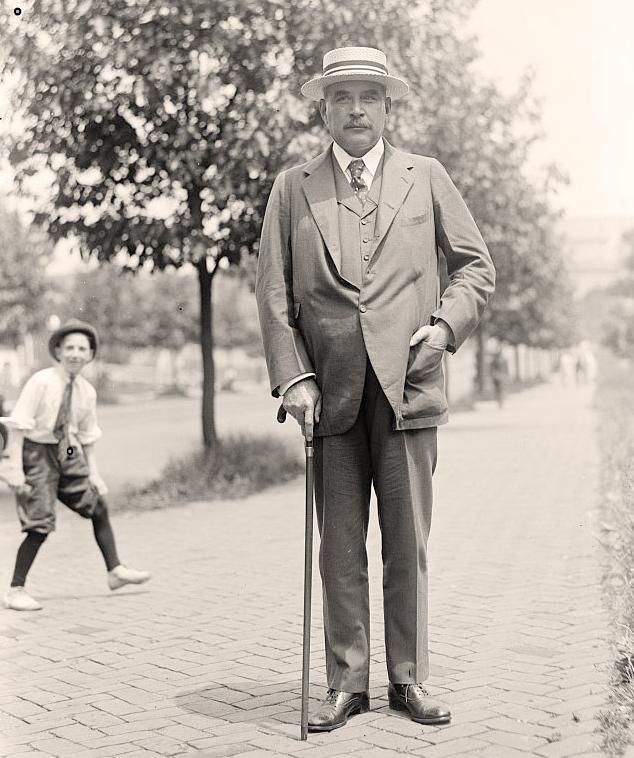
Posted by JD Hull at 11:59 PM | Comments (0)
Charles Bukowski: Intellectuals, Lawyers, Artists, Mensches.
An intellectual says a simple thing in a hard way. An artist says a hard thing in a simple way.
― Henry Charles Bukowski (1920-1994)

Posted by JD Hull at 11:59 PM | Comments (0)
January 10, 2013
Sensitive Litigation Moment: Racehorse Haynes Edition.
Say you sue me because you say my dog bit you. Well now this is my defense:
My dog doesn't bite.
And second, in the alternative, my dog was tied up that night.
And third, I don't believe you really got bit.
And fourth, I don't have a dog.--Richard "Racehorse" Haynes, Houston, Texas (1927- ).
Trial Lawyer. Athlete. War Hero. Persuader. Actor. Planner. Tireless Worker. Lots of enemies, lots of friends. He's 85. Kinky Friedman called him “one of the most successful and most colorful silver-tongued devils to grace Texas since God made trial lawyers.” He's still at it. Still fighting.
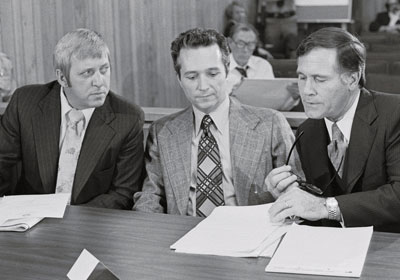
The Racehorse: “I would have won them all if my clients hadn’t kept reloading their gun and firing.”
Posted by JD Hull at 11:59 PM | Comments (0)
January 08, 2013
Sensitive Litigation Moment: Lawyering, Real Life and a Little Zen.
Brilliant people with no organizational skills or discipline--rocking back in forth in their desk chairs like mental patients repeating "I'm special"--is one of the oldest and saddest stories on earth.
No one cares you're smart. It's never been enough. We just want you to get out of the way. Or at least be safely clear of us when you blow that last tube.
Keep Your Beginner's Mind. The ability "to think like a lawyer"--what you get in law school and then polish in practice--is at most about 8 percent of what you need to be an effective lawyer. That's right, about 8 percent.*
Legal reasoning. Lots of people finally acquire it. Some are famously better and faster at it than others. A revered M&A lawyer wrote years ago that, at a minimum, it requires the ability to think about something that is "inextricably attached" to something else--but without thinking about that something else to which it's attached.
But can you think on your own? Can you work? Legal reasoning is critical--but it's never enough by itself to become an outstanding lawyer. The rest is frame of mind: energy, ambition, organization, logistics-sense, re-thinking everything all the time, a take-charge orientation, genuine people skills, and an urgent passion to solve tough problems.

But you say you need a "form"? You say you do well in "cookie cutter" workplaces after you get the hang of things? Consider selling women's shoes. Perhaps a different line of work. But not problem-solving.
Two pieces of great news:
1. By the age of 25 or so, many of us already have that admirable bigger and swirling mix of skills, and the more eclectic orientations needed for complex work and real life. Use them. Don't push them to the side.
2. If we do NOT have them, or have ALL of them, we can still get them.
Some important--but maybe not so great news: If you want to do higher end work--and be truly valuable, get that other 92 percent in place as soon as you can. Smart--and even brilliant--will not cut it.
"Brilliant" people with no organizational skills or discipline--rocking back in forth in their desk chairs like mental patients repeating "I'm special"--is one of the oldest and saddest stories on earth.
No one cares you're smart. It's never been enough. We just want you to get out of the way. Or at least be decently clear of us when you blow that last tube.
These days, and more than ever, training associates and paralegals to be effective and productive ($) quickly is much on the minds of employers. Get competent at all levels of problem-solving, and working at problem-solving with others.
It's still done through mentoring--but you--the "mentoree"--can't be passive. Demand to be trained well--and by someone who knows what they are doing. We're not paying you to take you by the hand, coddle you, or make you laugh. Your problem, younger folks.
Further, if you think you want to be a litigator or trial lawyer, you will also need Very Tough Hide--something which you can learn the hard way.
Finally, no matter what, you need The Will, and Big Ones.
Almost all of students we have interviewed in the last five years made law review, and will graduate at the top of their class. Again, not enough. Lawyers need to learn to think and act on their own from the first day. You need the traits listed above.
Think of it as an inside job.
If you are new, "steal our clients", please. Be that good. That will take a while. While you are learning, please understand that you are getting more than you are giving. You don't know much. (Not PC but true--get used to it.) So it's not unreasonable for us to ask you to try to do perfect research, editing and proofreading.
But we love your ideas, your first impressions, and the trick is to be confident enough to ask dumb questions and make comments. Often, your first impressions or "reactions" to a problem or project are very good--but we don't always hear them right away.
You may not know at first very much law, or how to apply it to facts for a fee, and then give the "right advice". But you have instincts evolving all the time--they have little to do with law school--that may surprise you. You had them all along. Perhaps see Alan Watts.
naughty child–
instead of his chores
a snow Buddha“Gimme that moon!”
cries the crying
child--by Kobayashi Issa, translated by David G. Lanoue (thanks to DG).

Posted by JD Hull at 11:59 PM | Comments (0)
January 07, 2013
"Are We Not Men?" The Everyday Domestic Drone.
In Business Insider, see "Domestic Drone Use Is The New Normal".

Posted by JD Hull at 02:42 PM | Comments (0)
Walt Whitman: "I was simmering. Emerson brought me to a boil."
I was simmering, simmering, simmering. Emerson brought me to a boil.
--Walt Whitman (1819-1892)
Inspiration. California's Jack London thought you could not wait for it. You needed, London felt, to "go after it with a club". But New Yorker Walt Whitman, a young printer and hack writer who had moved to the suburb of Brooklyn from his native Long Island, was somehow luckier. Ralph Waldo Emerson's thinking and writing ignited Whitman, hurling him into an exuberant and celebratory realm, a uniquely American place with few rules or limits, where no Western writer, including Emerson himself, had ever been or imagined. In 1855, using his own money, he first published "Leaves of Grass", which changed everything in American Letters.

Walt Whitman (1819-1892) in 1854.
Posted by Holden Oliver (Kitzbühel Desk) at 12:33 AM | Comments (0)
January 06, 2013
Of Men and Lemmings: Spirituality v. Organized Religion in America.

P.B. Persinger: "Semele and Zeus with Thunderbolt" (2007)
Ah how shameless--the way these mortals blame the gods. From us alone, they say, come all their miseries, yes, but they themselves, with their own reckless ways, compound their pains beyond their proper share.
-- Zeus
Lem·ming [lémming] 1. Small mammal with furry feet. Noted for group movements. Native to Arctic and northern regions. 2. Member of group of people who blindly follow one another. A doomed conformist missing out.
--WAC/P Dictionary
Do you need organized religion to check hubris? Does it matter who or what you use to curb folly and excess? We think not. Anyway, that's Zeus speaking in the first quote above--and in a rare public appearance--in Homer's Odyssey. He's the last anthropomorphic god we ever let take liberties with us. But at least Zeus says interesting stuff and gets correctly quoted by the ancient press. Once again, we ask you to get up off your damned knees. Embrace life. No, grab it by the throat.
Your religion is quite likely doing you and yours more harm than good. You're not lazy, right? You're not a peasant, correct? So how about coming up with a little spirituality on your own? It's all there inside you. Think your own thoughts. Have some self-respect. Start over.
In all things, listen to yourself. Lead a little, maybe? In short, please do your own work.
Invent your own spirituality. But work at it. Read, slow down, talk to people, travel, look at art, study the history of the world--and do crawl, pounce, creep and run around in the woods like a wild animal or angry Druid warrior on crank. Read the Gita and the 'Shads. Study Wordsworth. And Daniel Pinchbeck. Carl Jung. Some Blake. Talk to the crazy guy in Krogers. Do controlled experiments with "badness". Exercise more. Get in shape.
Do the Antler Dance at least once like you mean it.
Martin Luther, one of our favorite madmen, and who was truly wild, would like you to do all of the above. Same with Ted Turner. Kate Hepburn. And Ben Disraeli. Strive to be authentic.
However, should you view world religions as more than first-rate crowd control devices to keep you and yours in line, Zeus (pictured above in the Walmart tie) is seen practicing his aim with his lightning bolt. In that case: 1. Be "good". 2. Don't be "bad". 3. Always follow someone else's rules. 4. Listen to Huck Finn's demented Aunt Sally so she can "sivilize" you.
Posted by JD Hull at 11:59 PM | Comments (0)
January 04, 2013
Paris: 22 rue de Sevres, 7th arr.
Moment and Magic is where you find it. A resident of the Marais district, ex-New Yorker Richard Nahem photographs all corners of Paris, and lights them up in his I Prefer Paris. From May of 2009:

(Photo by Richard Nahem)
Marcello Mastroianni in windows at Le Bon Marche
Posted by JD Hull at 12:59 AM | Comments (0)
